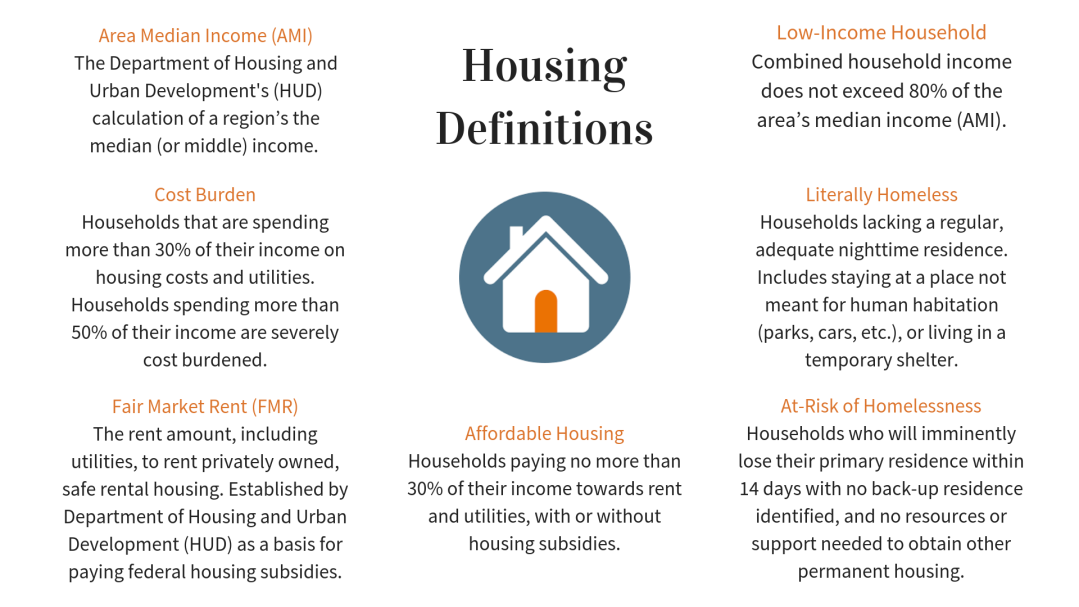Many low-income Michiganders cannot currently access housing, which leads to other life impacts and household instability. MCAH is collecting information from around Michigan about needs and solutions to increase access to affordable rental units. Share your ideas to help MCAH bring solutions to our state legislators. If you work on affordable housing or issues related to homelessness, we invite you to take our affordable housing survey at: https://www.surveymonkey.com/r/R9BX9QH
Across America, wealth, income, and spending create a widening gap in affordable housing opportunities between low-income households and other households. Michigan is no exception. Every day, low-income Michiganders search for safe, affordable rentals and home ownership opportunities with little success. One of the most important solutions lies in increasing access to affordable housing. The Michigan Coalition Against Homelessness (MCAH) and our state partners are concerned about the lack of safe, affordable housing and the need for additional resources to increase affordable housing access for low-income and homeless populations in Michigan.

Let’s put the need for affordable housing into perspective for Michigan. Michigan’s Fair Market Rent (FMR) for a two-bedroom apartment is $876 on average, ranging from $697 in Alcona County to $1,103 in Ann Arbor. Michigan’s minimum wage is $9.25 per hour, but an individual working for minimum wage at 40 hours per week for 52 weeks would not be able to afford a Fair Market Rent studio apartment ($534 on average) in most of Michigan. In fact, Michigan households need to make $16.85 per hour full-time (that’s $3,680 per month, or $35,057 per year) to afford an Michigan rental at Fair Market Rent.
Affordable housing is necessary for all households to survive and thrive, but there simply is not enough to go around. According to HUD, an estimated 12 million low-income U.S. households and 61% of low-income Michiganders are cost-burdened. This puts many of these households at risk of homelessness due to rising rents and stagnating incomes. Increasing access to affordable housing for low-income households creates lasting effects and removes barriers to improved physical and mental well-being, healthcare, reliable resources, and financial stability. The National Low Income Housing Coalition’s (NLIHC) 2018 report shows that low-income households with affordable housing are less likely to sacrifice necessities – like healthy food and health care – to pay rent. This increases stable housing situations and decreases the risk of becoming homeless, especially from evictions. In fact, affordable housing can have a positive impact on other social issues by reducing stress, hunger, drug abuse, and social isolation. It also increases social equity, access to healthcare, access to healthy foods, employment opportunities, and skills training . By increasing affordable housing in Michigan, we will create more opportunities to positively impact our communities.
This housing crisis “isn’t just about affordability—it’s about economic mobility, too,” – National Low Income Housing Coalition
Polling indicates that 75% of Americans believe that adequate, affordable housing is a human right. A community with enough affordable housing not only positively impacts individual household stability, but also improves its local economy in many ways. Using local resources helps increase affordable housing and assists with local job creation in construction and local businesses, and increases access and completion of job training programs. As households are able to spend less of their income on housing, they are also able to increases consumer spending locally due to increased financial stability.
While Michigan is not the only state in need of improved housing affordability for low-income and homeless populations, we still need immediate community solutions. Right now, communities need additional tools to invest in new housing developments, improve access to existing housing, and overall increase access to safe, affordable housing. We’ll be looking at what some of these solutions may be in the continuation of our blog series with deeper dives into zoning solutions, improving income, and improving resource assistance for low-income households.
First we need to better understand affordable housing needs and solutions in your community. We invite agency staff and stakeholders working on affordable housing to take our affordable rental unit survey. Your input will allow MCAH to bring data and information to our state legislators and advocate for real affordable housing solutions.
By Caroline Croom, MCAH Public Policy Intern. You can contact her at: ccroom@mihomeless.org. Additional questions or concerns can be directed to Laurel Burchfield // lburchfield@mihomeless.org and Jason Weller // jweller@mihomeless.org.

